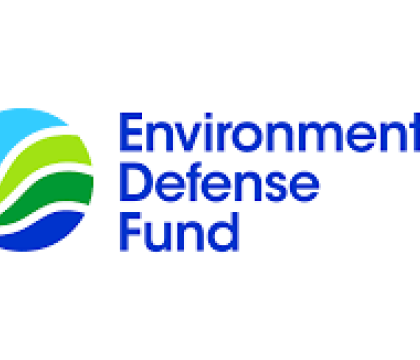Lorry I. Lokey Fellowship
The Lokey Fellowship is made possible through an endowed fund established by Stanford alumnus Lorry I. Lokey '49, and supports the work of a recent graduate of Stanford University's graduate programs in the Doerr School of Sustainability, the School of Engineering, or the Graduate School of Business.
This two year fellowship offers immersive cutting-edge research, and the opportunity to work directly with experts in science, economics, and other disciplines to help solve pressing environmental problems such as in oceans, ecosystems, climate, and/or environmental health.
EDF fellowships provide recent graduates a unique opportunity to work directly with experts in science, law, economics, and other disciplines and make a direct impact while taking on the biggest environmental challenges of our time. We aim to provide high-quality experiences, including relevant projects and opportunities for networking that form the foundation for any individual who is serious about pursuing an environmental career.
Program/Department Overview
The Office of Chief Scientist (OCS) is the nexus of science at EDF, ensuring that the scientific backbone for all EDF policy positions is based on the best available information. To be effective in this role, OCS works with staff from across EDF and provides programmatic support for all EDF scientists as well as fosters relationships with scientists in academia, government and industry. Resided in OCS, the Climate Science Team plays a central role in advancing policy-relevant science and making sure all climate-related initiatives and communications across EDF are based on the best available science. The Hydrogen Science Team resides in the OCS Climate Science Team, and is focused on advancing scientific understanding of the climate and other environmental impacts of hydrogen systems.
Overall Function
The Fellow will report to the Climate Scientist, and work closely with a cross-cutting team of hydrogen experts in science, law, domestic and international policy, economics, and business. The Fellow will play a central role in fulfilling the cross organizational demand for information on where hydrogen is most appropriate in decarbonization efforts and where direct electrification using renewable energy is the preferred approach; a topic that is hotly debated across the energy transition community, and robust, evidence-based clarity is needed.
The Fellow will conduct a comprehensive comparison of hydrogen systems versus direct electrification alternatives in all sectors in terms of climate impacts, economics, technology readiness, political viability, and regional practicality (such as infrastructure availability and climate zone). This project will be achieved through three primary functions: (i) synthesis of existing literature and interviewing external experts (deliverable: literature and knowledge survey); (ii) pursuing original analyses and research to fill knowledge gaps (deliverable: first authorship of a peer-reviewed paper); and (iii) translating the information for diverse audiences internally and externally (deliverables: presentations and factsheets). This project spans many disciplines (physical and social science, engineering, economics, policy, etc.) and many sectors (transportation, industry, buildings, power). The Fellow will therefore have the opportunity to engage with a variety of subject matter experts and teams across the entire organization, as well as policy and industry stakeholders.
- Literature reviews and expert interviews on hydrogen systems versus direct electrification alternatives in all sectors in terms of climate impacts, economics, technology readiness, political viability, and regional practicality.
- Research and analysis of information gaps found given the literature review and expert interviews with goal of developing a peer-reviewed publication; Prepare materials for translating findings and results for lay audiences both internally and externally, such as factsheets and presentations.
- Provide support to and work with a cross-cutting team of hydrogen experts in science, law, domestic and international policy, economics, and business.
- Participate in scientific conferences, team meetings, working groups, and career development trainings; Represent EDF in meetings with industry and policy stakeholders.
- Participate in advancing EDF Diversity, Equity, and Inclusion (DEI) goals in which people from all backgrounds and experiences feel connected, included, and empowered to address the environmental and organizational challenges in alignment with EDF values.
- A recent Masters degree from Stanford's Doerr School, Engineering, or GSB in a related field (e.g., environmental or energy sciences, environmental or energy economics).
- Demonstrated interest in the global energy transition.
- Experience in literature review, synthesizing complex sets of information, and system-level thinking.
- Proficiency in data gathering, analysis, and visualization using Excel or other similar analytical tools. Experience with a programming language is not required.
- Excellent written and oral communication skills.
- Must be well organized, motivated, and detail-oriented.
- Ability to multi-task, prioritize and meet deadlines.
- Ability to work in a team setting and have the ability to work independently when projects are due.
- Demonstrate self-awareness, cultural competency and inclusivity, and ability to work with colleagues and stakeholders across diverse cultures and backgrounds.
- Demonstrate initiative and problem solving skills.
